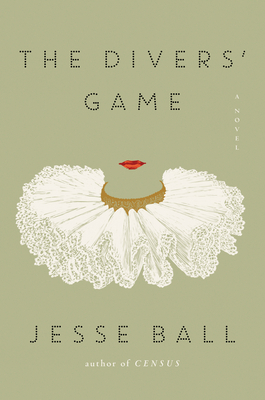The end of the year has yielded some marvellous reading. I’ve been saving Helen Oyeyemi’s Gingerbread until now, because the very title makes me think of Christmas (the parts of it I still enjoy, frost and music mainly, and, well, gingerbread) and because her close-knit, somehow private prose has a wintry feel, at least for me, by which I mean the scent of woodsmoke and the way Rothesay Bay looks – like the lagoon in The Land that Time Forgot – when it’s shrouded in mist.

Oyeyemi’s Gingerbread is all those things. It’s also a novel that is supported by an undercurrent of deep anger, wrapped about so tightly in coloured lights and party games you might not notice it. There’s a scene in the book where a bunch of helpless girls are being bullied by a bunch of other, momentarily more powerful girls, who make the tormented ones laugh and smile while they’re being pinched and manhandled, so the adults (and the watching cameras) will not realise what’s actually going on. The whole of Gngerbread is like this, and this is its subject matter.
I could call Oyeyemi a clever writer or a subversive writer or a writer of startling originality and while she is all of these things, what she is most is a writer who is intent on following her own interests, her own concerns, her own manner of expression, with barely a thought for the ‘literary establishment’ or what might be popular or acceptable or ‘now’. Her work is discursive, densely wound as a ball of wool and sometimes as difficult to untangle. There are moments when it’s tiring to read, to stick with it, because it’s so much its own thing, showing so little concern for what I might be thinking or feeling, but that’s what makes Oyeyemi’s writing rewarding, that’s what makes it important. I’m also guessing that’s what makes it so much less talked about and discussed and rewarded with prizes (am I mistaken in thinking that Oyeyemi has never yet been shortlisted for a major prize?) than it should be.
We have a magician in our midst. I know she won’t care about prizes, which is why I’m giving myself permission to care on her behalf. What she cares about is the writing, the doing of it, the thinking, the following of a thread of an idea (or a trail of breadcrumbs, if we really must) wherever it leads her. The placing of one word in front of another, an outpouring of imagery so rich and so personal it might communicate to some as dissonance, but that is in reality as careful and considered and skilful as the aligning and mortaring of bricks to build a fortress wall.
She is unique and she is wayward and she is to be treasured. I watched an interview with her recently on YouTube in which many of those qualities shine out strongly, most of all her insistence on being allowed the head-space to say what she actually means, rather than being pushed towards repeating the slew of steady, ready answers to familiar questions that inevitably accrue in our minds when we’ve done even a couple of author events, let alone a book tour. Again, treasure. I was interested, though afterwards not surprised, to hear her mention Jesse Ball as a favourite writer. Just a week or so ago I read his most recent novel The Divers’ Game, and though opposite to Oyeyemi in some ways – so pared down it’s like glass, or granite, with the immaculate sheen of poetry – in the quality of its writing it possesses that same waywardness, that same fierce, you might even say stubborn insistence on being what it is, that is, an almost icily accurate representation of what the writer is actually thinking, actually feeling.

Not a summary, not a pruned-back, dumbed-down approximation, but the real deal. A brutal and terrifying portrayal of dystopia and moral laziness and yet at the same time – can I even say this? – still somehow hopeful, The Divers’ Game should win every science fiction award out there in 2020. My prediction is that it won’t be shortlisted even for one.
I am thinking of these two writers especially today because they give me courage. They give me courage to believe that it is possible, as a writer, to enter the places you need to enter, to explore the realms of thought and language you feel bound to explore.
To say what we have to say, regardless of how it might be received, what worth might be placed upon it by others. To follow what we believe to be true, and to keep on going.